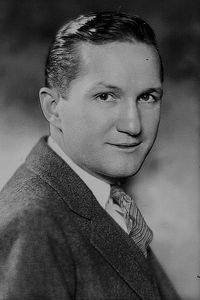Tom Powers, a native of Kentucky, embarked on a captivating journey in the realm of acting, driven by his unwavering passion for the craft. His determination led him to enroll at the esteemed American Academy of Dramatic Arts, a prestigious institution renowned for its rigorous training programs.
As a young man of 21, Tom's perseverance paid off when he secured a contract with Vitagraph Pictures in the year 1911, marking the inception of his cinematic odyssey. For the next two years, he diligently honed his skills under the banner of Vitagraph, meticulously refining his craft and developing his unique artistic voice.
With his artistic proficiency now finely tuned, Tom set his sights on a transatlantic adventure, crossing the Atlantic to England in pursuit of new creative opportunities. It was here that he showcased his remarkable talents on both the stage and screen, leaving an indelible mark on the British entertainment scene.
Throughout his time in England, Tom's exceptional abilities as an actor earned him widespread acclaim, solidifying his reputation as a talented and versatile performer. His impressive portfolio of work continues to be celebrated to this day, a testament to his unwavering dedication to his craft and his ability to captivate audiences with his remarkable performances.
As he returned to the United States, Frederic Powers continued to make appearances in a limited number of films, ultimately deciding to redirect his focus exclusively to stage work. This artistic decision remained in place for an extended period of time, until 1944, when he received an unexpected and esteemed invitation from the renowned film director Billy Wilder to assume the pivotal role of Mr. Dietrichson in the iconic motion picture Double Indemnity. This marked a significant turning point in Powers' career, as he went on to appear in a multitude of films over the subsequent 12-year period, often portraying authoritative figures such as detectives, army officers, District Attorneys, and more, thereby solidifying his reputation as a versatile and accomplished actor.
As the passage of time unfolded, Powers persisted in his unwavering dedication to the film industry, leaving an indelible imprint on the world of cinema that would be remembered for generations to come. His illustrious career gradually drew to a close in November 1955, when he succumbed to the devastating consequences of heart failure, a sudden and unforeseen event that left a profound sense of loss in its wake.
Despite the cruel hand of fate that had been dealt, his final film, The Go-Getter, was released posthumously in 1956, serving as a poignant and haunting reminder of the enduring legacy left behind by this talented and accomplished individual, whose remarkable contributions to the world of cinema would continue to inspire and influence countless others long after his passing.





































































